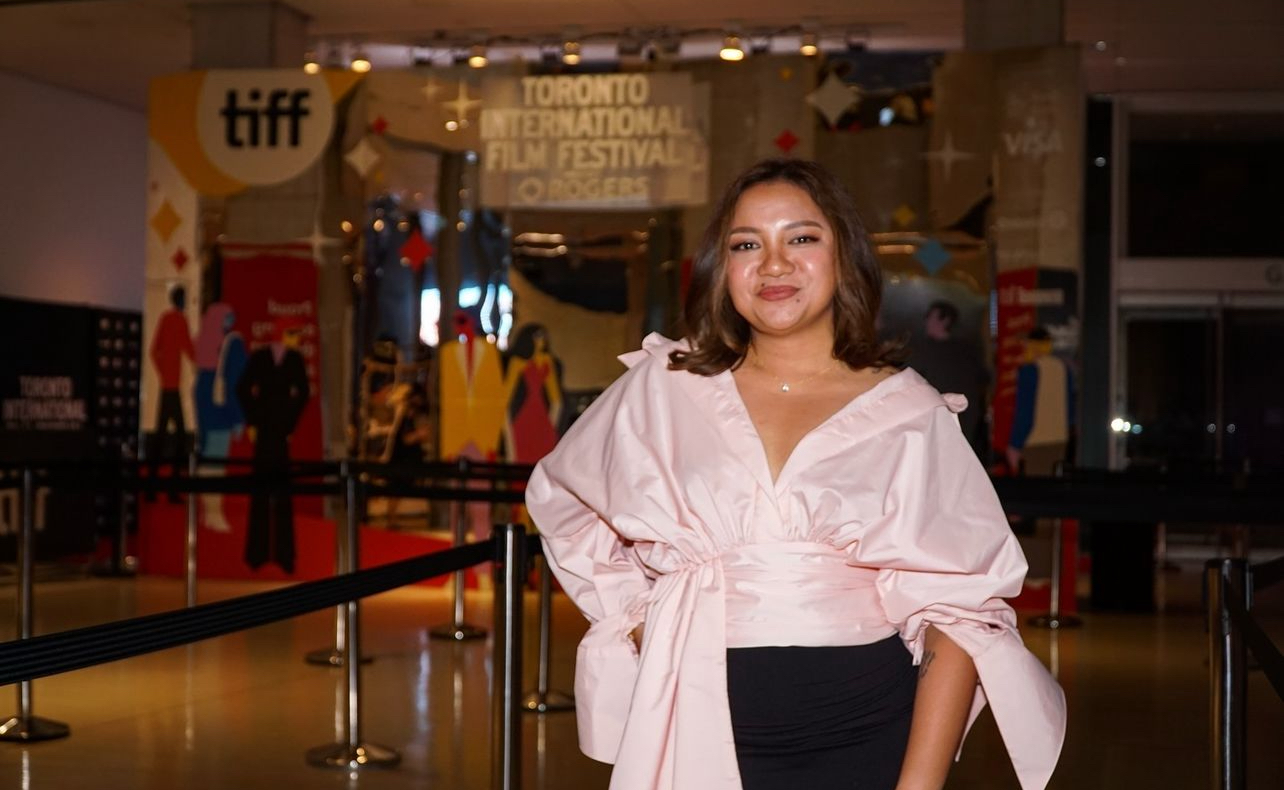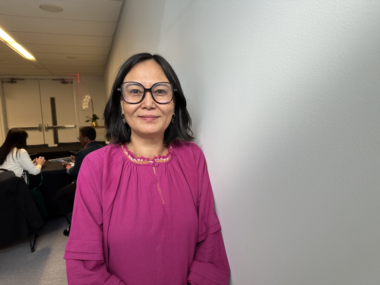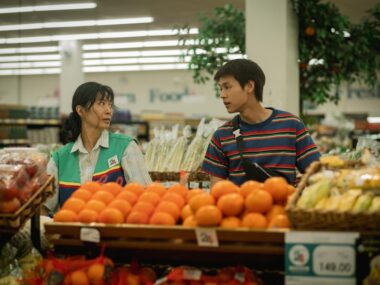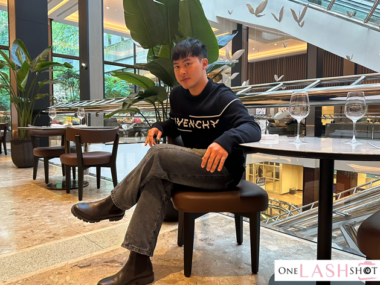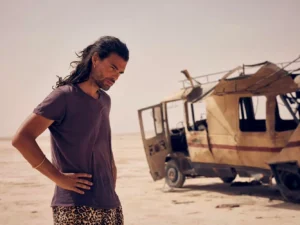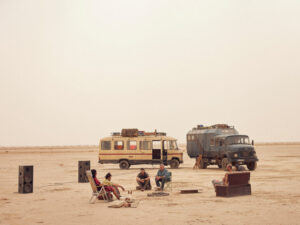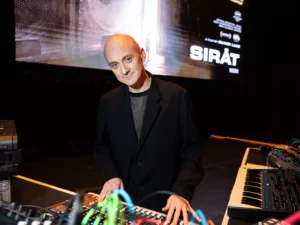I have been watching Director Antoinette’s movies for over a decade now. Most of the classic rom-com hits in the Philippines were by her, so inevitably as an adolescent, I was drawn into the Filipino film industry primarily through her incredible repertoire.
In an exclusive interview (I still can’t believe it!), Director Antoinette Jadaone spoke about her extensive career and her metamorphosis from rom-com scripter/director to addressing formidable political issues and societal norms through her psychological sports drama, ‘Sunshine’.
Actress Maris Racal plays ‘Sunshine’, a highly-talented gymnast, who finds out she is pregnant, shortly before trying for the national team.
The film made its world premiere at the Toronto International Film Festival under the ‘Centerpiece’ segment on September 13 and is slated to compete at the 17th Asia Pacific Screen Awards.
One Lash Shot had the opportunity to speak with Director Antoinette Jadaone about the behind-the-scenes of Sunshine.
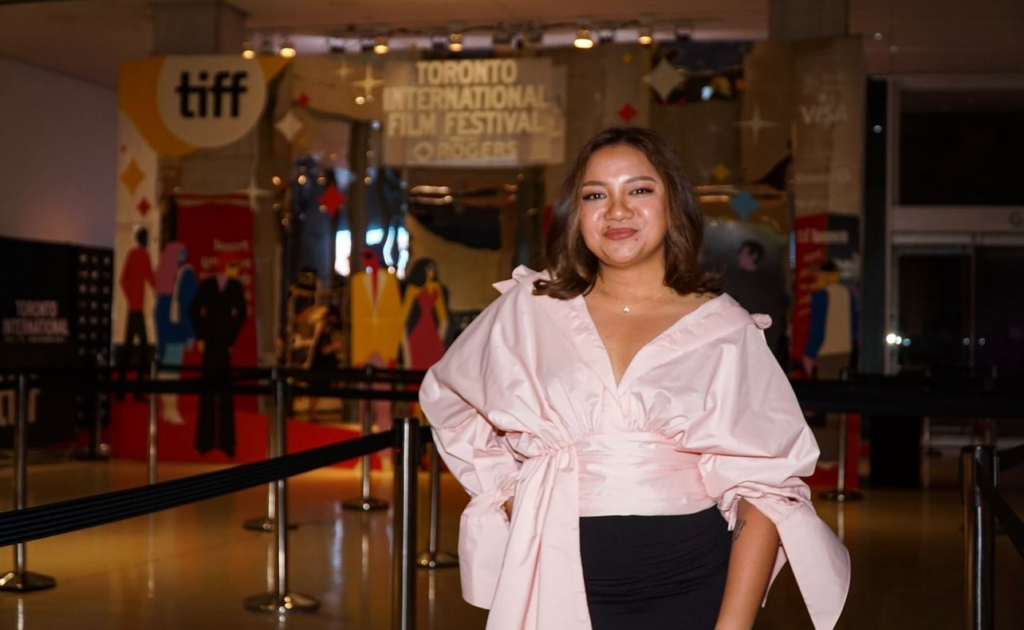
How did you first become interested in movies?
When I was 13 or 14, my grandad bought a Hi8 video camera. It was used for family events like reunions and parties. So, I got hold of it. I sort of volunteered to take videos of everyone. I would shoot in sequence and sometimes I would let them act in front of the camera, without knowing that I was doing a short film then. I didn’t know that it could be considered a short film then. Later in high school when we had a chance to choose a subject per student, whether culinary, music or painting— I chose video production. I really enjoyed doing that in that year. So, I enrolled in a film course in college. My family really liked watching movies in theatres. It was like a weekly tradition. We would watch once every two weeks in the theatres as a family. It’s something I was used to doing with my family— watching movies.
You have directed and written the screenplay of several movies. The very first was a mockumentary called Six Degrees of Separation from Lilia Cuntapay. For some popular movies, you only wrote the script, like in English Only, Please and The Breakup Playlist. Why did you choose to not direct them too?
During that time, I was directing my own films as well, so, I was tasked only to write the screenplay for those. Usually, for romantic comedies, they would ask me to write the screenplay. I am a rom-com girl, so it’s a genre I love consuming, but also writing about. So, when the time came for me to direct and write films, it became my comfort zone. So, that’s why when producers want rom-com scripts, they ask me to write them.
Since 2015, you have done both. What made you decide to both direct and write your works— your last projects being Boldstar and Sunshine? How did the switch happen?
I made Six Degrees of Separation from Lilia Cuntapay through a film grant. It’s like an independent film festival in the Philippines where you get a seed grant and then you do the rest. If it’s not enough, then you ask people for money— that’s what I did. That was my first film. I was in my 20s then.
But, after that, I felt that I wasn’t ready to do my next film, so I went back to being a production assistant and a script continuity supervisor. I was a scripter while doing that film. So, I went back and I was so scared of doing my second film. I felt that I wasn’t at my best. I felt like I needed to study more and have more experience.
And then, 3 years later, in 2014, I joined another independent film festival with a seed grant— the same festival that gave us money for Six Degrees of Separation from Lilia Cuntapay and then it became a sleeper hit. That film I made in 2014 was called That Thing Called Tadhana. ‘Taldhana’ means ‘destiny’. We made that for $35,000 because it was a seed grant and they gave us that much. But we went over budget, so I had to ask people for money again. But it earned $ 2.3 million. It was a super-hit.
It kickstarted everything— I got the attention of the producers of the major film studios in the Philippines cinema where I was working as a production assistant and scriptwriter. When I was working as a production assistant and script supervisor, they did not really care about me. But when I directed That Thing Called Tadhana and two other films in the same year, that’s when I got their attention.
Then they asked me to write and direct my first ever mainstream film a year later. That started my relationship with mainstream cinema, after coming from the independent scene.
Your movie Alone/Together was one of a kind. Not only did it feature a real-life couple, but it highlighted the impact of life hitting hard and how, with time, you can grow apart and back together again. How did you come up with such a beautiful story filled with art, museums and The Eraserheads?
Those are things I love. I love The Eraserheads. I love museums. I love art. I love Filipino painters. But when I work for Star Cinemas, actually it starts with them giving me a project brief. So, usually, they don’t ask me for an existing concept. What they do is— they come to me; they give me a brief about the actors who are supposed to have their next film. That’s when I need to think about a film for them. So, in this case, it was Liza Soberano and Enrique Gil.
So, that’s how it actually happens in the mainstream Filipino film industry. Step 1- they have actors in mind. Step 2- is the director and film concept. Sometimes it’s the film concept and then the director who is willing to direct it. So, it’s become that process with Star Cinemas.
With Liza Soberano and Enrique Gil, I had this small notebook where I put all my film ideas and then I just wrote 5 sentences per idea per film concept. So, when the time comes that a company wants me to write or direct something, I just go through the notebook and see what is best suited for the cast.
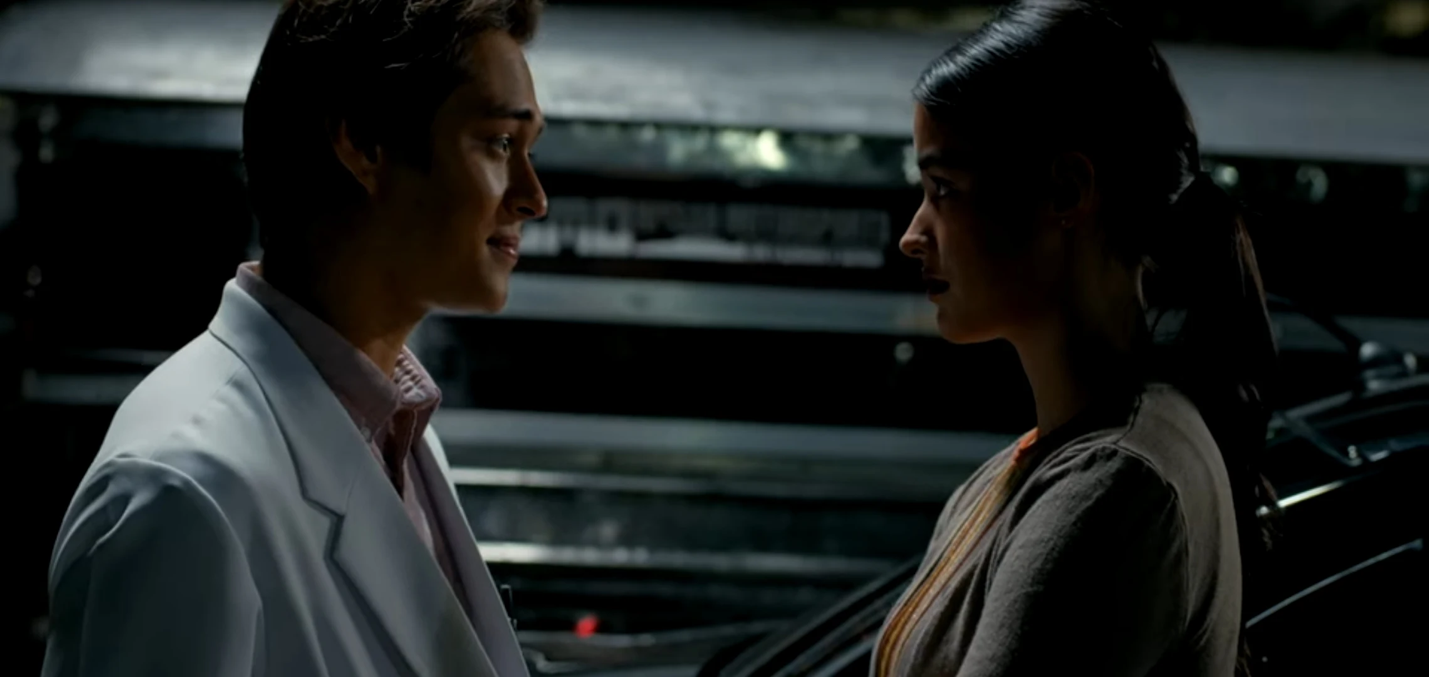
I had this concept for Alone/Together because I come from the school where that film was set— the University of Philippines. It’s my love letter.
It was in university where my love for cinema was cultivated. And my love for life, my love for friendships, my love for love. Because I was studying film, I was introduced to a lot of Filipino authors. Every Wednesday I would watch a film— it used to be so cheap in the Philippines to watch a film! So even when you are a student you can watch 2-3 films in a week. That’s where I got that habit of watching films in a theatre. We had a theatre inside the university.
I wanted that kind of love story to be seen by a lot of people since it’s mainstream cinema. The main themes of love and nostalgia are something everyone can relate to. So, I think it was a perfect story for that ‘love theme’.
Sunshine is a dark film. Somewhat different from your usual genre. This is not a love story with a twist. Instead, it’s a psychological sports thriller. What’s the overarching vision of the film? What inspired you, and what themes or emotions were you trying to convey through Sunshine?
It started during the pandemic in 2020 after I watched Jojo Rabbit. I loved that film because it was about a boy with an imaginary friend, who happens to be Hitler. So, it was a dark subject matter, but it was treated with so much lightness in the beginning and then dark again towards the end.
During the pandemic, the film industry was one of the industries that shut down. We couldn’t make movies because we couldn’t go out to shoot. So, I was looking for a place where I could still do art. Still do my thing which was writing. Because you can write anywhere— even during a pandemic. So, I thought about the journey of a pregnant teenage girl and how I can make tangible or personify those happenings in her head, while she is undergoing that very difficult process, while simultaneously trying to pursue her dreams.
So, at first, it was just an idea. When I write, it just usually starts out that way. A “what if” concept. My next process would be interviewing. Like interviewing the people for initial research. So, I interviewed 5-6 girls who had a kid when they were in their teens and also, girls who terminated their pregnancy. Their stories were really very chilling. It wasn’t what I expected. I thought it would be like the usual stories I hear about teenage pregnancies and girls.
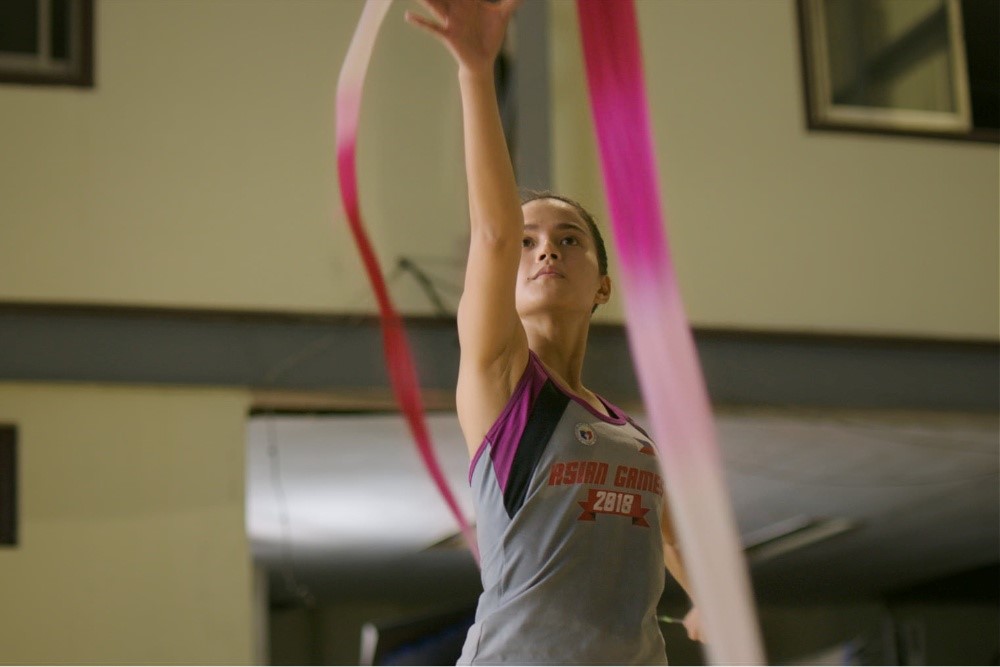
It was while doing that, that I knew that I had to continue writing this story. It wasn’t just about a big idea or a “what if” story that came from Jojo Rabbit. It had a life of its own. I had no choice but to continue writing it because of the stories I heard.
Abortion is constitutionally prohibited in the Philippines. But the character, ‘Sunshine’, considers abortion as an option in the movie. Was it hard to portray it, as the act itself is illegal?
Yes. We are hoping it will be legalized. I initially wrote it with the Filipino audience in mind. It’s a big hope to show it locally in the Philippines. Censorship in the Philippines is really hurting the filmmakers. If you get an X-rating, then you cannot be shown in mainstream cinemas. You only get to be shown in schools or select theatres. What we are hoping is that we could spark a discourse. It’s still taboo. It’s not something you talk about on the streets or even in an online discussion. So, even just starting a conversation will be a big help to the girls who need it most.
As for legalizing abortion, we are really far, far behind. Not so much as to legalizing it, but even decriminalizing it. They are two different things. I think it’s really something that’s far from happening, especially now. So, what we are hoping is just to start a conversation about supporting women and women’s reproductive rights and putting the focus on the kids and women. Especially, during this time when it’s the women who lose the most in the Philippines— you don’t have divorce etc.
Rape is considered a criminal offence in the Philippines. However, your movie showed that it’s not necessarily always punishable even if it leads to a pregnancy. So, what’s the truth?
Based on my research, many teenage pregnancies happen because of incest. Incest and statutory rape— it’s something not talked about again. Incest is when you think like your uncle or your father is someone close to you, so you can’t help but just agree to whatever they tell you to do. So that’s why I wanted to put it in the film because it is the reality. Some statistics that prove it exist. Even then, abortion is not allowed. Even if, the pregnancy happens because of incest.
What was your favourite scene in the film and why does it hold special meaning to you? I think you answered this during the Q&A- it’s the motel scene, right?
That’s my favourite scene because it’s very internal. It’s visual, of course, it’s very physical. But the real story happens internally with ‘Sunshine’. It’s a very delicate scene— one wrong move can put the conversation in another direction.
It was a scene I was dreading to shoot because it was a scene that needed to be handled with such delicate care. It was during the 30th minute, I think. I purposely put it in that part. When you watch it, it becomes the scene you go back to. She attempted to have the abortion by herself. She had a lot of support from everyone. She had her friend, who of course abandoned her. Her sister, her brother. The boyfriend who wasn’t there.
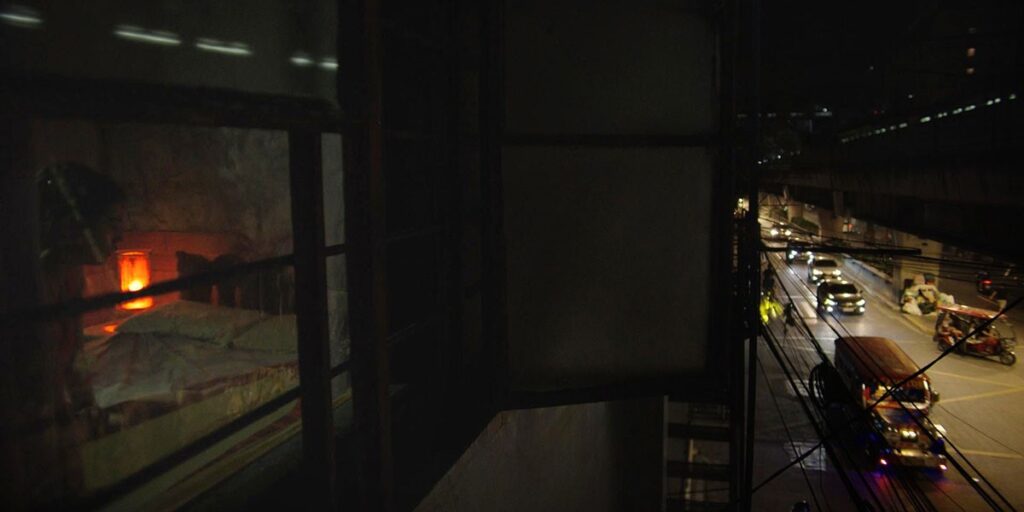
There are a lot of girls who do perform the abortion by themselves because they have no one to turn to. They are so afraid because it’s illegal etc. It puts a big weight on your shoulders. Not just for ‘Sunshine’, but when you see the film as a director, as a director of photography, as a production designer, as a viewer— it puts a lot of weight as you see that scene happen right in front of your eyes. So, what do you do next?
So that would identify as a challenge to shoot, correct? Were there any other challenges you faced during the production process?
Yes. I mean there were a lot of challenges— physical challenges, logistic challenges, budget constraints, etc. Scheduling was an issue too as we were shooting in the middle of the rainy season in Manila. But of course, those are situations we can find solutions to.
But I think the more challenging part would be those moments that you need tender care when you handle it, like in the motel scene— that changes the course of the film.
How did you cast Maris? Was it easy to work with her? How did she undergo the training to perform like a true gymnast?
I first worked with Maris 3-4 years ago. She wasn’t so popular back then, unlike now, where she has a lot of projects.
I worked with her on 3 projects— 3 series— 2 as a director and 1 as a producer. Even then I had already seen how she was as an actress. She was mature beyond her years. She was only in her early 20s. She was so professional; she would study her scenes. She has a certain innocence, but also a certain wisdom with how she deals with things. She was really good at comedy. She was really good with drama. So, after the 3rd project that I worked with her on, I sent her the script for Sunshine and I told her if you like it, the ok— I didn’t ask her to audition.
First, I chose her because she has the body, the height, the build of a gymnast. She is really petite; she is really small. Second, she is a dancer so she is flexible in real life. So, the training would be not as difficult.
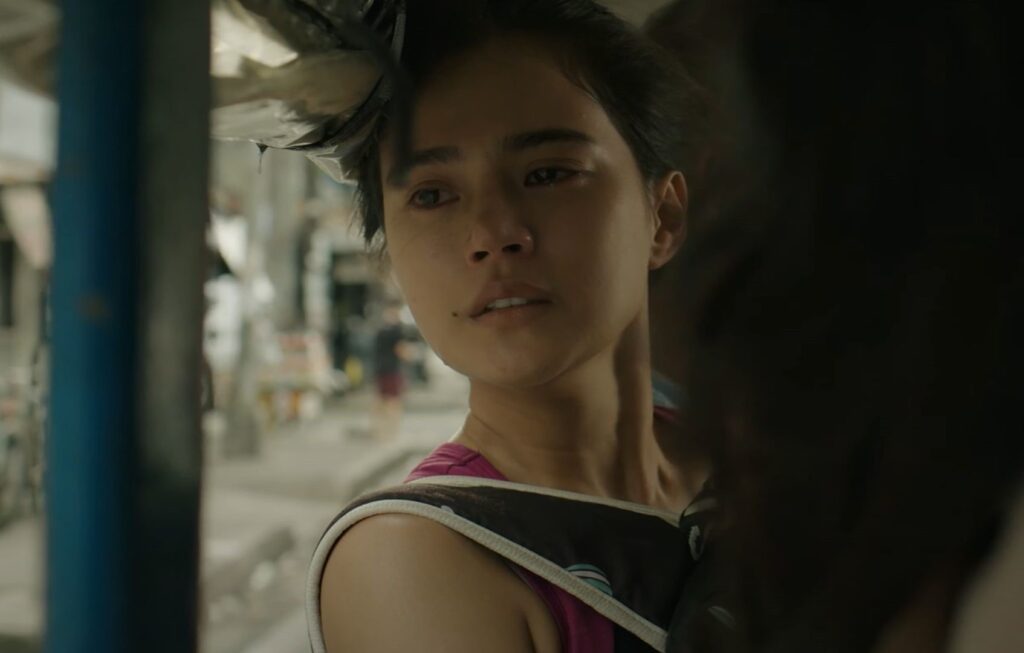
So, since the physical requirements were already met, I gave her the script and then I told her if you like the script, give me a call/message and then we will talk.
Then, she read the script and messaged and told me a few days later that she loved the script. She cried while reading it. She told me that she was going to be ‘Sunshine’. But I asked her first to think about it because I wanted my ‘Sunshine’ to agree with the statement of the film. I wanted her to know what the issue is really and whether she would share the same values as in the film. It was a point to me that mainly the actress embodies the same values as me, in the film. I mean I don’t want someone playing ‘Sunshine’ who wouldn’t abort and instead, give up on her dreams.
It took a lot of time before she came back to me as I didn’t want to pressure her. I told her it’s ok, you don’t really have to say yes. Because it’s a film beyond you, like what the film is saying. Weeks later, she told me that she thought about it and she agreed with ‘Sunshine’, with the statement it said, and from then on, we started with the film.
She was there during the seed auditions of the kids because I wanted her to have that chemistry with the kids. She would come during the final auditions for the chemistry tests.
She had training. We partnered with the Gymnastics Association of the Philippines. She had 2 coaches/trainers who were part of the national team. One of the coaches is a national team coach. While the other coach is part of the national team as a rhythmic gymnast. So, when she wasn’t busy with other shoots/projects, she would train twice a week. Then it became once a week and then once a month. Later, because she was a dancer, she was able to study the routines very fast.
Aside from the actual training, I made her watch a lot of training. Just to see how other gymnasts walk, how they talk, how they deal with other gymnasts. Sometimes, after training she would just stay for an hour more, just to observe how the gymnasts are.
Where exactly was this movie shot?
The gymnastic training scenes were shot in the same gym where Carlos Yulo trained in the Philippines before he went to Japan to train. Carlos Yulo is our first double gold medallist for gymnastics. Gymnastics was a forgotten, underrated sport in the Philippines until we had Carlos Yulo win. It was always basketball, even though we did not have the height for it (laughs)…
It became a happy coincidence when Carlos Yulo won and then it coincided with the news that we got into TIFF.
For the rest of the scenes, we shot in Manila. We shot exactly where the film was set. It’s in Quiapo. That’s why I waited for the pandemic to be over because I wanted to capture the real heart and soul of Quiapo which is very crowded and very noisy, with a lot of people going there even at night. But during the pandemic, it was wiped out there.
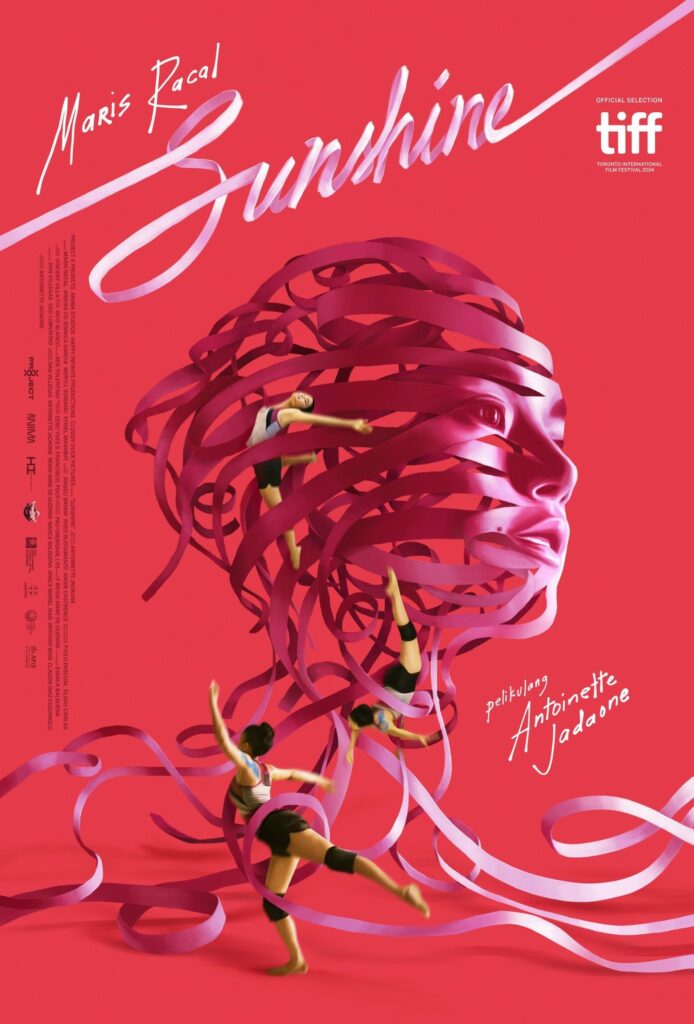
So, I waited for 2 years for the pandemic to clear and then we shot there. Right in the middle of the Quiapo church and it’s exactly that way. The Quiapo church where people flock to have their devotion, they hear mass and just a few meters away from the entrance of the church where you get pickpockets, where you get small-time thieves, where you get kids running around…and where you get the abortion pills.
What is the intended impact on the audience? What do you hope viewers take away from Sunshine?
It’s really giving back to the women the power to decide for themselves. Know that they have the liberty to decide for themselves about their own body. Around 500 Filipino kids give birth almost every day in the Philippines. These kids remain unnamed, we don’t know their stories. They have their own chilling stories to tell about their pregnancies terminating or continuing, even if they are overcome by poverty.
We have a saying that says “It takes a village to raise a kid”. But it also takes a whole village to teach these young girls what kind of village are we— are we a village that supports these kids? Or are we the kind of village that villainizes these kids when they become like ‘Sunshine’?
The real question is— Are we cultivating the right kind of environment for these kids to grow up?
What does your near future look like after the undoubted success of Sunshine? What is Boldstar about and when is it expected to be released?
It’s still in the development stage!
I developed and started writing Boldstar even before Sunshine.
We are really hoping to get into more film festivals and have distribution in North America. We are also really hoping for a local release. We have to do due diligence as to the afterlife of a film, while also taking care of Sunshine.
We want more and more people to see it— especially Filipinos. But I think the story of Sunshine won’t only resonate with Filipinos but with women all over the world everywhere.
One of the biggest help we got was from the Film Development Council of the Philippines. It’s like the film council branch of the government. We have support from the government in that area as we got funding from them. We were looking for gap financing before we were finally able to shoot. We received it from the Film Development Council of the Philippines.
There’s a glimmer of hope, that the members of the Film Council believe that a film like this should be told, so much so that they provided funding to finally start shooting.
[Author’s Note: Special thanks to Antoinette for being one of the kindest humans that I was lucky enough to meet. Thank you to Maris for playing the titular role and bringing this story to life onscreen!]

